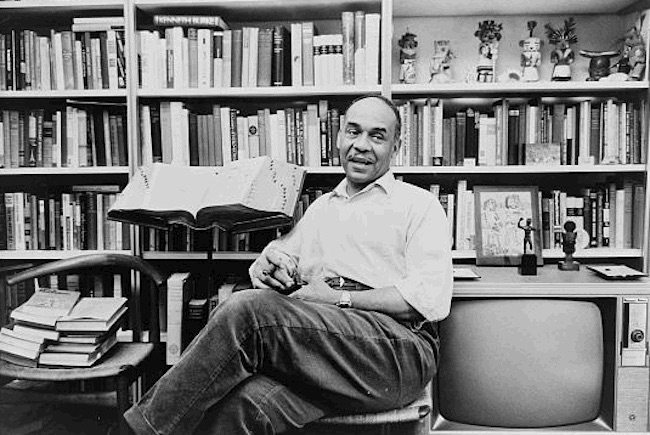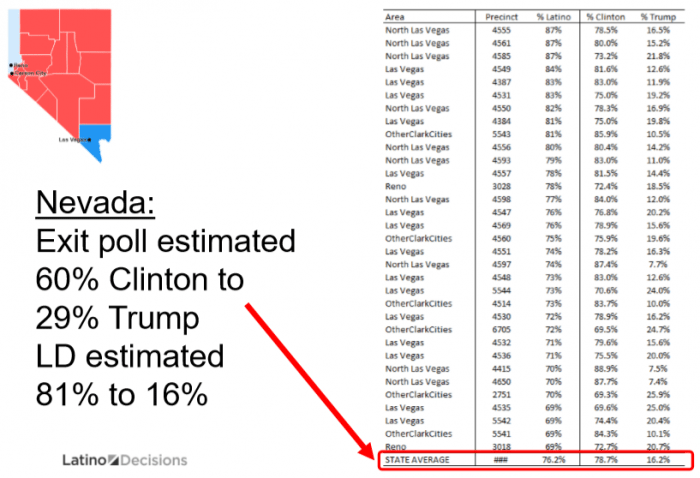Editor’s note: An earlier version of this piece was published here.
Towards the end of his 1952 masterpiece Invisible Man, Ralph Ellison’s protagonist finds himself ostracized by the “Brotherhood,” his white-led civil rights organization. The ironically named labor group choose to disregard his community organizing and his community in Harlem for their own political advantage, benefiting white residents in Manhattan at the expense of Black people.
“Here I had thought they accepted me because they felt that color made no difference,” Ellison writes, “when in reality it made no difference because they didn’t see either color or men… For all they were concerned, we were so many names scribbled on fake ballots, to be used at their convenience and when not needed to be filed away.”
Ellison’s prose could very well apply to how the media has reacted since November 8’s presidential election, which has revolved around the enigmatic Trump voter that swung former Blue Wall states. The white factory worker in the Midwest, disgruntled with political correctness and his Union, took the route of “Make America Great Again.” That’s been the headline for the nation.
There wasn’t much study or consideration for Latinx voters, the country’s fastest-growing voting bloc. And for studies that did, there was little understanding for how people actually perceived issues or solutions.
Consider national exit polls, conducted by Edison Media Research on behalf of the six major news outlets. Their election night poll found that Latinx voters preferred Hillary Clinton to Donald Trump at a lesser rate than they did four years earlier with Barack Obama and Mitt Romney. According to their metrics, Latinx communities broke 66-28 Clinton to Trump, compared to 71-27 for Obama.
There’s just one problem with Edison’s work: Despite changing demographics over the last few decades, they have historically been (and continue to be) culturally ignorant with Latinx communities. There is a mountain of evidence in everything—from how they talk with us, what language they address us in (English or español), where they poll us on Election Day (neglecting Latinx communities and focusing on battleground districts in swing states where there aren’t large or even representative Latinx populations) and even who we are as people of Latin American descent.
Latino Decisions, a Democratic-leaning polling group that was (and is) far more rooted in Latinx communities, had more comprehensive data showing a break for Clinton at far higher a rate (79 percent) than Latinx voters went for Obama in 2012.
In addition, no previous pre-election polling data prior confirmed Edison’s results. Simple mathematics for large Latinx communities in Florida, Texas, Arizona, New Mexico, Colorado, Nevada and California also proved higher turnouts for Clinton than Obama. Arguably, Clinton would not have a nearly three-million vote margin if it weren’t for Latinx turnout.
Take, for example, the state of Nevada. Francisco Pedraza and Bryan Wilcox-Archuleta concluded in an analysis of Latinx turnout in Nevada versus exit polls: “Voting patterns drive policy… Every democracy needs good data. When it comes to the Latino vote, the national exit poll isn’t good enough.”
Effectively, Edison Research (acting in the service of the six major outlets) has authority over the perceptions of communities through polling. The prologue to Invisible Man describes the protagonist’s invisibility to white people is “A matter of the construction of their inner eyes, those eyes with which they look through their physical eyes upon reality.”
Like the circumstance of Ellison’s protagonist and his Harlem constituency under the Brotherhood’s control, national exit polls mitigate the perspectives of Latinx communities. And as Pedraza and Wilcox-Archuleta assert, this has consequences for Latinx voters.
After finding that the Brotherhood does not care about the views of Black people, the protagonist returns to Harlem only to find a race riot, which he later realizes benefits the Brotherhood at the expense of the community.
Media discussions following the election have sought to rationalize border walls, support for abusive police and segregation under the auspices of “school choice.” All these issues impact Latinx communities, yet their voices are rarely heard in news coverage.
While skewed polling affects communities of color most apparently, it more broadly alters the reality of the country—like white America’s blindness identified in Invisible Man. To improperly or insufficiently understand Latinx perspectives is to render them invisible.
***
Eduardo Cuevas is an indebted college graduate who writes about history and politics. He hails from his Chicanx community of Salinas, California, although he went to Santa Clara University and studied history and English on indigenous burial grounds. In his spare time, he likes to ride his bike and eat his mother’s nopales.




